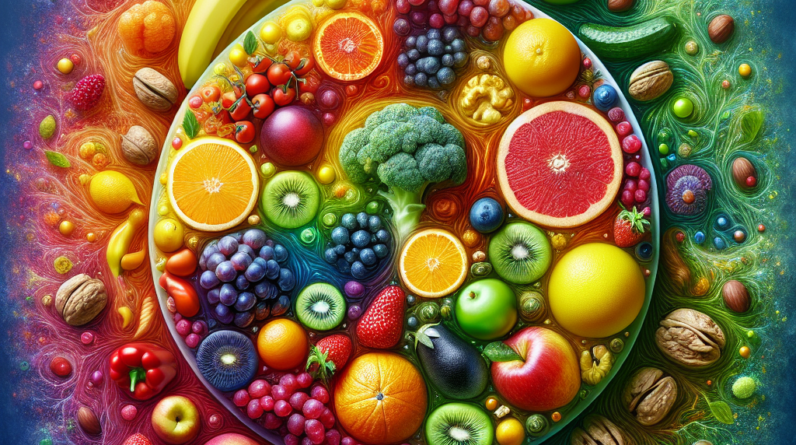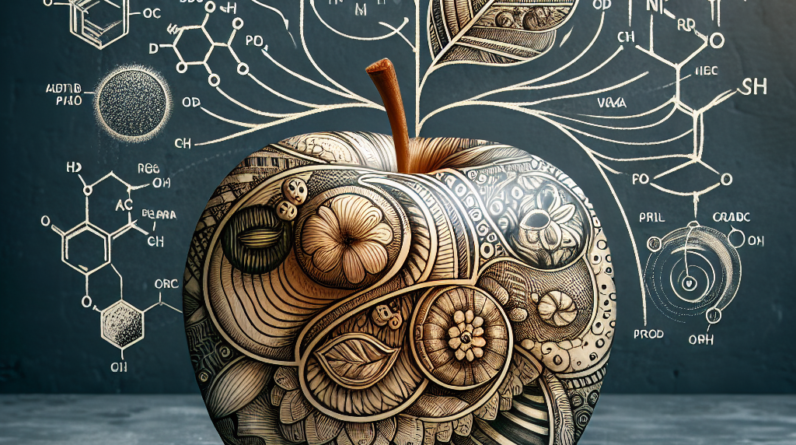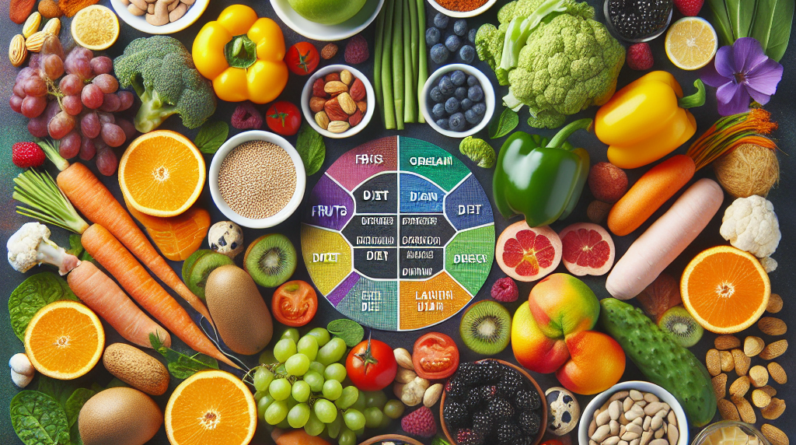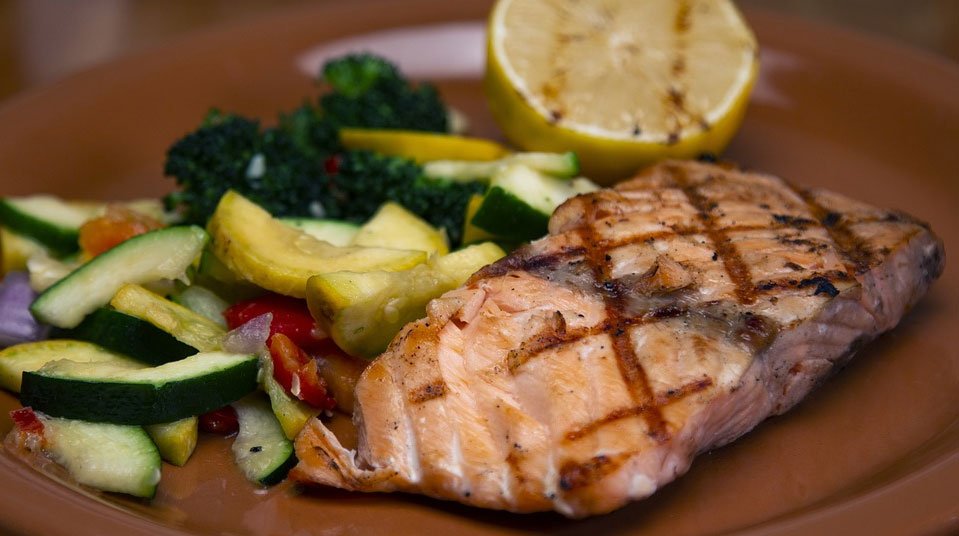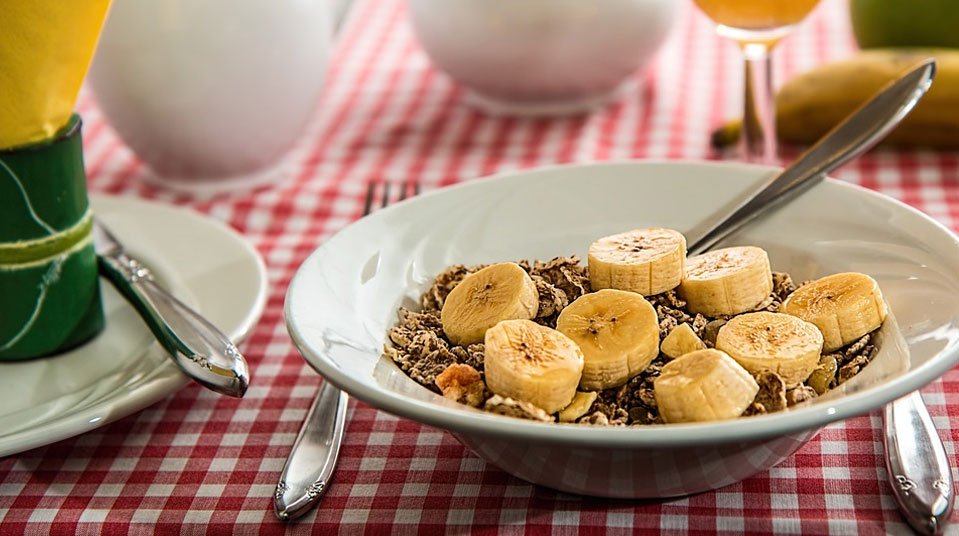
In the quest for youthful and radiant skin, antioxidants have become a popular buzzword. From creams to supplements, people are seeking out these powerful compounds for their anti-aging properties. But what about meat? Does it have antioxidants too? This may come as a surprise, but meat does indeed contain antioxidants. While fruits and vegetables are often hailed as the main sources of these beneficial substances, it turns out that meat also plays a role in providing antioxidants to our bodies. So, let’s dig in and discover the unexpected benefits that meat can bring to the table when it comes to antioxidants and skincare.

Antioxidants in Meat
When we think of antioxidants, we often associate them with fruits and vegetables. However, did you know that meat can also be a significant source of antioxidants? In this article, we will explore the presence of antioxidants in different types of meat, their role in promoting health, and factors that can affect their levels. We will also compare the antioxidant content of meat with plant-based foods and discuss the importance of considering potential alternatives. So, let’s dive in and explore the world of antioxidants in meat!
Types of Antioxidants
Before we delve into the specific antioxidants found in meat, let’s first understand what antioxidants are. Antioxidants are compounds that help protect our cells from damage caused by free radicals. Free radicals are unstable molecules that can lead to oxidative stress, which is associated with various health issues. Antioxidants neutralize these free radicals and prevent them from causing harm. There are several types of antioxidants, including vitamins (such as vitamin E and C), minerals (such as selenium and zinc), and phytochemicals (such as carotenoids and flavonoids).
Free Radicals and Oxidative Stress
To fully appreciate the role of antioxidants in meat, it is important to understand the concept of free radicals and oxidative stress. Free radicals are highly reactive molecules that can be generated from various sources, including normal metabolic processes, exposure to environmental pollutants, and even stress. When there is an imbalance between the production of free radicals and the body’s ability to neutralize them with antioxidants, oxidative stress occurs. This oxidative stress can damage cells, proteins, and DNA, which can contribute to the development of chronic diseases such as heart disease, cancer, and neurodegenerative disorders.
Role of Antioxidants in Health
Antioxidants play a crucial role in promoting overall health and well-being. They not only help protect the body against oxidative stress and reduce the risk of chronic diseases but also contribute to maintaining healthy skin, supporting a strong immune system, and managing the aging process. By neutralizing free radicals and reducing inflammation, antioxidants can enhance the body’s ability to repair and regenerate cells, thus promoting optimal health.
Antioxidant Content in Different Types of Meat
When it comes to antioxidants in meat, the content can vary depending on the type of meat and other factors. Let’s take a closer look at the antioxidant content in some commonly consumed meats.
Beef
Beef is a rich source of several antioxidants, including selenium, zinc, and vitamins B6 and B12. These antioxidants play a vital role in supporting the immune system, promoting healthy skin, and supporting cognitive function. Grass-fed beef tends to have higher levels of antioxidants, as the animals are typically fed a natural diet that enhances the nutritional content of the meat.
Poultry
Poultry, such as chicken and turkey, contains antioxidants such as selenium, zinc, and B vitamins. These antioxidants contribute to maintaining a healthy immune system, supporting cell growth and repair, and promoting skin health. The skin of poultry is particularly rich in antioxidants, so it is advisable to consume it in moderation to maximize the antioxidant intake.
Pork
Pork is another meat that contains antioxidants, primarily selenium, zinc, and B vitamins. These antioxidants support immune function, aid in metabolism, and contribute to maintaining healthy skin and hair. However, it is important to note that the fat content in pork can influence the overall antioxidant levels, so opting for lean cuts is recommended.
Fish
Fish, especially oily fish like salmon, mackerel, and sardines, is not only a good source of omega-3 fatty acids but also contains antioxidants such as selenium, vitamin D, and astaxanthin. These antioxidants contribute to reducing inflammation, protecting against oxidative damage, and promoting cardiovascular health. Including fish in your diet can provide you with a wide range of antioxidants and numerous health benefits.
Processed Meats
Processed meats, such as sausages, bacon, and deli meats, may contain lower levels of antioxidants compared to unprocessed meats. The processing techniques involved, such as smoking, curing, and adding preservatives, can affect the antioxidant content. Additionally, some processed meats may have higher salt and saturated fat content, which can potentially negate some of the benefits associated with antioxidants.
Factors Affecting Antioxidant Levels in Meat
Although meat contains antioxidants, the levels can be influenced by various factors. Let’s explore some key factors that can impact the antioxidant content in meat.
Animal Diet
The diet of the animals plays a significant role in determining the antioxidant levels in meat. Animals that are raised on a natural, pasture-based diet tend to have higher levels of antioxidants, thanks to the nutrient-rich grasses and plants they consume. On the other hand, animals raised on a grain-based diet may have lower antioxidant levels. Therefore, opting for meat from animals that have been raised on a natural diet can help maximize antioxidant intake.
Cooking Methods
The cooking methods used can also affect the antioxidant content in meat. Overcooking or cooking at high temperatures for prolonged periods can lead to a loss of antioxidants. It is advisable to use gentler cooking methods, such as grilling, baking, or steaming, to retain as much of the antioxidants as possible. Marinating meat with herbs and spices before cooking can also enhance the antioxidant profile.
Processing Techniques
As mentioned earlier, processing techniques employed in the meat industry, such as smoking, curing, and adding preservatives, can affect the antioxidant levels. These techniques can lead to a reduction in antioxidants or the formation of potentially harmful compounds. Therefore, choosing minimally processed meats or preparing homemade versions of processed meats can help maintain higher antioxidant levels.
Storage Conditions
The storage conditions of meat can also impact its antioxidant content. Exposure to air, light, and heat can lead to the degradation of antioxidants over time. It is advisable to store meat properly in airtight containers in the refrigerator or freezer to minimize the loss of antioxidants. Consuming fresh meat within a reasonable time frame can ensure you receive the maximum antioxidant benefits.

Comparing Antioxidant Levels in Meat and Plant-Based Foods
While meat can be a significant source of antioxidants, it is essential to compare its antioxidant content with plant-based foods to make informed dietary choices. Let’s examine the antioxidant content in fruits and vegetables and explore alternative sources of antioxidants.
Antioxidant Content in Fruits and Vegetables
Fruits and vegetables are well-known for their high antioxidant content. They provide a wide variety of antioxidants, such as vitamins C and E, carotenoids, and flavonoids. Brightly colored fruits and vegetables, such as berries, tomatoes, spinach, and broccoli, are particularly rich in antioxidants. Including a variety of fruits and vegetables in your diet can ensure a diverse range of antioxidants that contribute to optimal health.
Plant-Based Sources of Antioxidants
In addition to fruits and vegetables, other plant-based foods also contain antioxidants. Whole grains, nuts, and seeds are good sources of vitamin E, while legumes provide a range of antioxidants, including flavonoids and phenolic compounds. Herbs and spices, such as turmeric, cinnamon, and oregano, are also packed with antioxidants. Incorporating these plant-based foods into your meals can increase your antioxidant intake.
Overall Antioxidant Contribution: Meat vs Plants
When comparing the antioxidant content of meat and plant-based foods, it is essential to consider both the quantity and variety of antioxidants. While meat can provide specific antioxidants like selenium and zinc, plant-based foods offer a wider range of antioxidants in higher quantities. Therefore, incorporating a combination of meat and plant-based foods can yield a more balanced and diverse antioxidant intake.
The Role of Meat in a Balanced Antioxidant-Rich Diet
Now that we understand the antioxidant content of meat and plant-based foods, let’s discuss the role of meat in a balanced diet rich in antioxidants. It is important to consider the synergistic effects of consuming both meat and plant-based foods, the quality and quantity of meat consumption, and individual health goals.
Synergistic Effects of Meat and Plant-Based Foods
Combining meat and plant-based foods in your diet can offer synergistic effects when it comes to antioxidant intake. Both types of foods contribute unique antioxidants that work together to support overall health. For example, the iron present in meat can enhance the absorption of plant-based iron from sources like spinach and lentils. By including a variety of both meat and plant-based foods, you can optimize the antioxidant benefits for your body.
Quality and Quantity of Meat Consumption
When incorporating meat into your diet, it is important to prioritize quality over quantity. Opting for lean cuts of meat can help minimize the intake of saturated fat while still obtaining essential nutrients and antioxidants. Additionally, consuming meat in moderation and balancing it with a variety of plant-based foods can help ensure a well-rounded antioxidant-rich diet.
Considering Individual Health Goals
Individual health goals should also be taken into account when including meat in an antioxidant-rich diet. For individuals with specific dietary restrictions or health conditions, personalized approaches may be necessary. Consulting with a healthcare professional or registered dietitian can provide guidance tailored to your unique needs and goals.
Health Benefits of Antioxidants in Meat
The presence of antioxidants in meat can offer numerous health benefits. Let’s explore some of the key advantages associated with consuming meat rich in antioxidants.
Reducing Chronic Inflammation
Chronic inflammation is a common underlying factor in many chronic diseases. Antioxidants in meat can help reduce inflammation by neutralizing free radicals and preventing oxidative stress. By incorporating antioxidant-rich meat into your diet, you can support the body’s natural defense against inflammation and potentially reduce the risk of chronic conditions.
Protecting against Oxidative Damage
Oxidative damage, caused by free radicals, can contribute to cellular and DNA damage. Antioxidants in meat can counteract the harmful effects of free radicals and protect against oxidative damage. By including antioxidant-rich meats in your diet, you can provide your body with the necessary defense mechanisms to maintain healthy cells and DNA.
Supporting Skin Health
Antioxidants play a crucial role in promoting healthy skin. The antioxidants in meat, such as selenium and vitamins B6 and B12, contribute to the production of collagen, a protein essential for skin elasticity and repair. By incorporating antioxidant-rich meats into your diet, you can support skin health and potentially improve the appearance and vitality of your skin.
Managing Age-Related Diseases
As we age, our bodies become more susceptible to age-related diseases such as cardiovascular disease, cognitive decline, and certain types of cancer. The antioxidants present in meat can help reduce the risk of these diseases by neutralizing free radicals and supporting overall health. Including antioxidant-rich meats as part of a balanced diet can contribute to healthy aging and disease prevention.
Controversies and Limitations
While meat can provide antioxidants and valuable nutrients, it is important to acknowledge certain controversies and limitations surrounding its consumption. Let’s examine some of the key concerns related to processed meat, higher cholesterol and saturated fat content, and potential risks of excessive meat consumption.
Processed vs Unprocessed Meat
Processed meats are often associated with a higher risk of chronic diseases, such as heart disease and certain types of cancer. The processing techniques used in these meats, along with the addition of preservatives and high salt content, can contribute to these health concerns. It is advisable to limit the consumption of processed meats and opt for unprocessed or minimally processed alternatives instead.
Higher Cholesterol and Saturated Fat Content
Some types of meat, particularly red and fatty meats, can be higher in cholesterol and saturated fat. A diet high in these substances is associated with an increased risk of heart disease and other health issues. Therefore, it is important to limit the intake of high-fat cuts of meat and choose leaner options to minimize the negative impact on cholesterol levels and overall cardiovascular health.
Potential Risks of Excessive Meat Consumption
Excessive consumption of meat, especially in the absence of a balanced diet, can have potential health risks. Some studies have linked high meat intake, particularly processed and red meats, to an increased risk of certain cancers, such as colorectal cancer. It is advisable to moderate meat consumption and focus on a diverse diet that includes a variety of nutrient-dense foods to mitigate these potential risks.
Recommendations for Choosing and Consuming Meat with Antioxidants
To make the most of the antioxidant benefits in meat, here are some recommendations for choosing and consuming meat:
Opting for Lean Cuts
When selecting meat, choose lean cuts with less visible fat. This can help reduce the intake of saturated fat while still providing essential nutrients and antioxidants. Trimming excess fat before cooking can also further reduce the saturated fat content.
Incorporating Variety
To enhance the range of antioxidants in your diet, incorporate a variety of meats in moderation. This can include lean beef, poultry, pork, fish, and even game meats. By diversifying your meat intake, you can ensure a broader spectrum of antioxidants and increase the overall nutritional value of your diet.
Preparation Tips
To maximize the antioxidant content in meat, opt for gentler cooking methods such as grilling, baking, or steaming. Overcooking or cooking at high temperatures for prolonged periods can lead to a loss of antioxidants. Marinating meat with herbs and spices can also enhance the antioxidant profile.
Balancing Meat Intake within a Balanced Diet
Finally, it is crucial to balance your meat intake with other food groups to create a well-rounded, antioxidant-rich diet. Include a variety of fruits, vegetables, whole grains, legumes, nuts, and seeds to ensure a diverse range of antioxidants and essential nutrients. By focusing on a balanced approach, you can optimize the synergy effect between meat and plant-based foods.
The Importance of Considering Potential Alternatives
While meat can provide antioxidants and valuable nutrients, it is important to consider potential alternatives, especially for individuals who may have dietary restrictions or prefer not to consume meat. Exploring plant-based sources of antioxidants and adopting vegetarian or vegan diets can offer a wealth of nutritional benefits.
Exploring Plant-Based Sources of Antioxidants
Plant-based foods, such as fruits, vegetables, whole grains, legumes, nuts, and seeds, are excellent sources of antioxidants. By incorporating more of these foods into your diet, you can benefit from the numerous antioxidants they provide while enjoying a wealth of other health-promoting nutrients.
Vegetarian and Vegan Diets
Vegetarian and vegan diets are entirely plant-based and can offer ample antioxidants and essential nutrients. These diets emphasize a wide variety of fruits, vegetables, whole grains, legumes, and plant-based proteins. By adopting a vegetarian or vegan lifestyle, you can rely on plant-based sources to meet your antioxidant needs while enjoying the potential benefits associated with these diets, such as reduced risk of chronic diseases and lower environmental impact.
Finding a Personalized Approach
Ultimately, finding a personalized approach to your diet is essential. It is important to consider your individual health goals, dietary preferences, and any specific dietary restrictions. A healthcare professional or registered dietitian can provide personalized guidance to help you optimize your antioxidant intake and overall health.
Conclusion
Antioxidants play a crucial role in maintaining optimal health, and meat can be a valuable source of these important compounds. From beef to poultry, pork to fish, different types of meat offer various antioxidants that contribute to overall well-being. However, it is crucial to consider factors that affect antioxidant levels, choose lean cuts, and balance meat intake with plant-based foods. By incorporating a variety of foods into your diet and exploring potential alternatives, you can ensure a balanced and antioxidant-rich approach to promote your health and well-being. Remember, it’s all about finding the right balance and making choices that align with your individual needs and goals.


